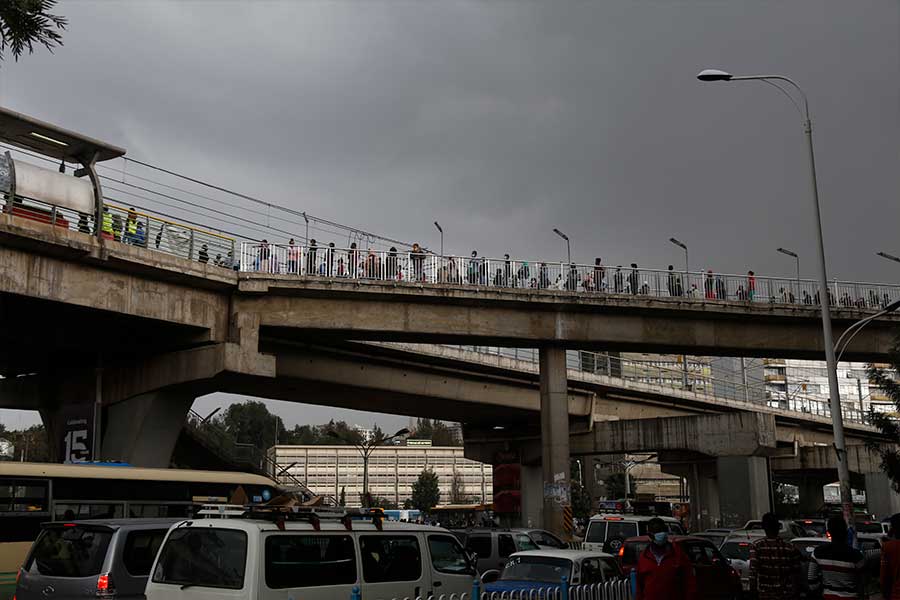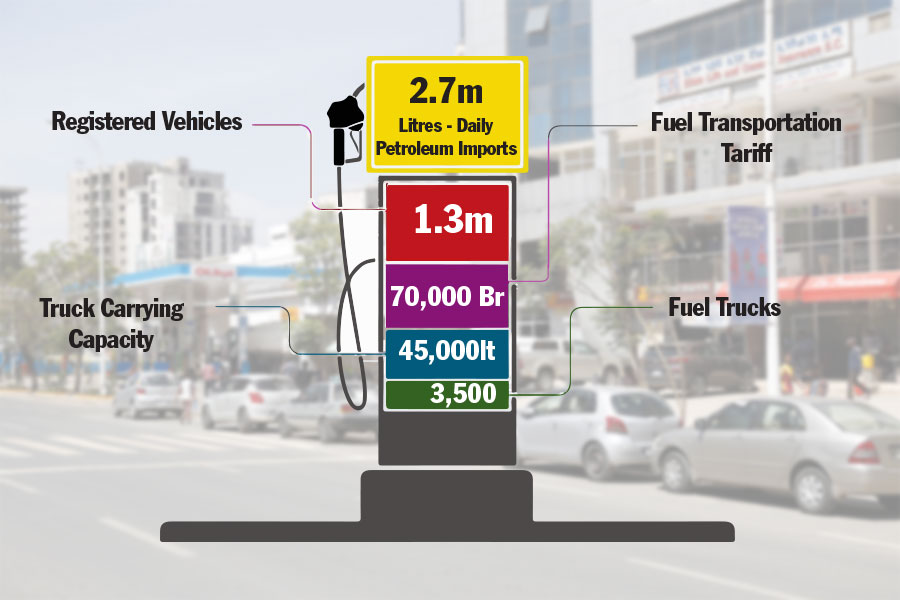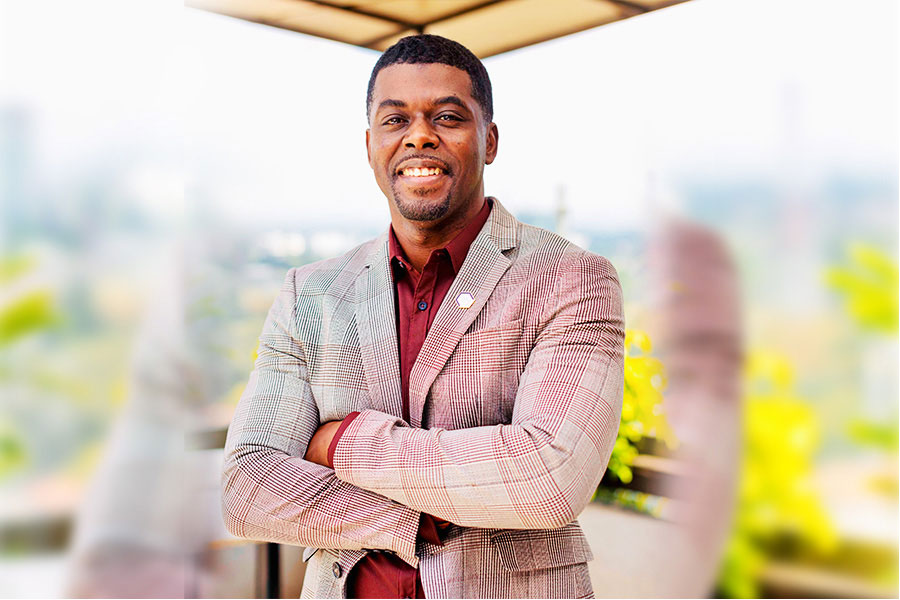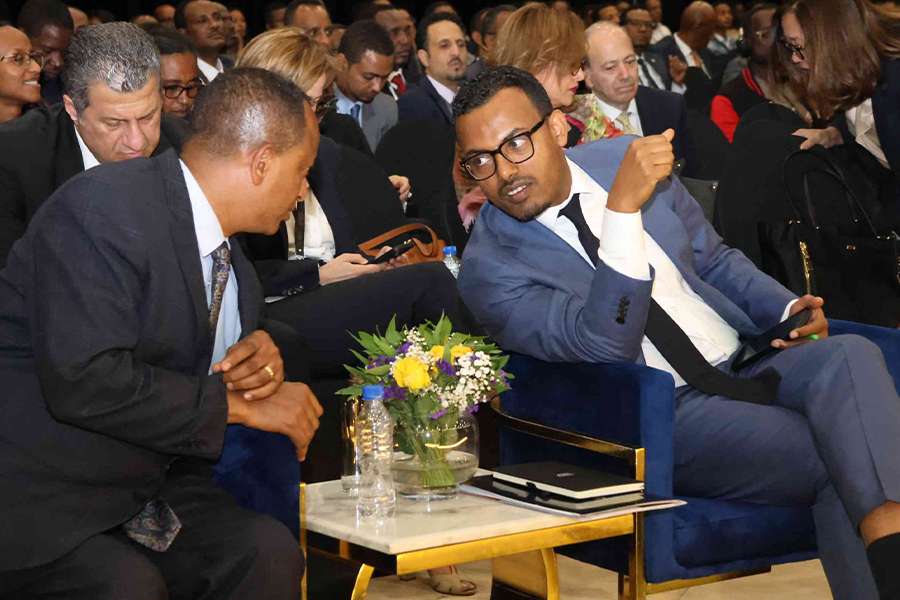
My Opinion | Nov 13,2021
Heineken has been in Ethiopia for nine years, and within a short period risen to become a major employer and one of the highest tax-paying companies in the country. But the company’s vision is to grow as ambitiously and robustly as the country can. This is why Hubert Eze, managing director for Heineken Breweries SC, who sat down with Fortune for an interview, sees the company as thoroughly Ethiopian. Having gone from the position of sales representative in Nigeria to managing director of one of the brewer’s largest African market, Eze stresses that Heineken is in it for the long haul.
Q: Heineken has been around in Ethiopia for almost a decade now. Can you tell us a little about some of the investments that have been made?
Heineken, as a policy everywhere we go in Africa, including Ethiopia, has a long-term ambition about investments. So we invest for the long haul.
We arrived in 2011 with the acquisition of Bedele and Harar breweries. We've also built the most modern brewery in the country in Kilinto in two phases. We've invested 92 billion Br in Ethiopia in manufacturing, agricultural, human capital development, marketing and supporting local enterprises in our local sourcing programme. It's quite extensive. If you look at human capital development we have Ethiopians who've been given the opportunity to head overseas, acquire specific technical skills and come back to Ethiopia.
When you develop the skills of people, a lot of them will move to other industries and facilitate growth there. We also have technical improvement programmes embedded in the culture and work method of Heineken.
If you also look at the way we manage the technological transfer, it is very important. When we started, we had a lot of expats working here, but as we progressed those numbers are coming down as they are being substituted by locals. In fact, there is now an Ethiopian that has risen to become a supply chain director in one of the top African markets.
Q: Those are a lot of investments to protect. Over the past year, there have been changes, including an alcohol advertising ban, excise tax increase and then the lockdown of bars and restaurants. This must have been a very bad year for you.
We are a responsible company and an Ethiopian company. We must obey the laws of the country. Has is it impacted our business? Yes, of course. The cost of beer and non-alcoholic drinks has gone up. It affects consumption; it affects how much people pay. It is not scary to us, but it is the reality of the moment.
But when you put the kind of money we are putting on the table and building the kind of human capital we have, it means we are here for the long haul. We have a very young workforce and over 1,000 people working for us. The impact across the economy is around 30,000 people. All depend on the investments we make, whether you are in the bar or the 40,000 farmers we support. This shows that we are here to stay. Temporary setbacks will come.
COVID-19 came. It affected consumption, consumers and the world. It brought us back to our senses and changed the way we live. One of the things that I enjoy in the Ethiopian culture is the way you eat and share. So when you eat, you share. You do not just share a meal, you share the love. COVID-19 stopped it. The African heart is warm.
If COVID-19 can do all these things. it changes the way we look at life and the way we operate completely. We think and hope that it will be temporary. Much credit goes to the Ministry of Health on how they managed it so far. The consistency, clarity and direction and the support they gave to people that were infected. They've been very effective. Hopefully, we all support the government to continue its progress.
Q: When something like the COVID-19 pandemic occurs, there is an increasing urgency for corporations to fulfill their social responsibility. How has Heineken been trying to play its part?
We have done a lot, but it's never enough. We would love to do more. We supported the government with a donation of three million Birr to the Addis Abeba City Administration, for instance. We've held feeding programmes. Over the Ethiopian ,New year we spent the holiday with doctors and other administrative staffs of St. Pawl Hospital looking after COVID-19 patients. We had food cooked and served to them, because those are people that are making a difference.
In communities, we've been providing hand sanitiser and hand wash stations, including in towns such as Addis Ababa Bedele and Harar. Being part of the community is very important to us. This makes it effective for us to be good neighbours. Remember, we are also a part of the community. There is, in fact, a project in a slum we're thinking about now. How can we renew it, creating a little bit better living conditions in the area?
In the area of social corporate responsibility, we believe that we do not only invest in the economy or human capital. We also invest in socially impactful projects. That is why we have the Heineken African Foundation, which is dedicated to maternal and child care, water hygiene and sanitation. We spent close to 150 million Br already in Ethiopia under the Foundation, building and renewing hospitals, maternity wards and water infrastructure.
It is very dear to our heart.
Q: The beer industry has come to be dominated by foreign multinational firms over the past decade. What do you say to the accusation that this hurts the economy in the long term?
For the economic development of any country, you need foreign investment. It is important that you attract them and keep them.
Remember, Heineken Ethiopia is an Ethiopian company with international investors - you need to view it from that lens. If you look at the over 37,000 jobs we've created indirectly, we're helping over 40,000 farmers and their households and 1000-plus employees.
When you come with training and development of human capital, the best thing you can do for anybody, any professional, is to give them knowledge. It is something you never take away. Ethiopians or the Ethiopian government should not be worried about the role being played by Heineken in the economy, because we are here to stay for the long term.
Q: One of the impacts of COVID-19 has been the lockdown measures instituted to contain its spread. This has happened across the world. Was there a time where you had to close or had to consider that?
This year started with the new excise law, which affected output significantly. Then COVID-19 came. Like every Heineken company across the globe, the first thing we do is follow local regulations. Then we have a structure coming down from our central office - international standards - on how to operate.
So we first segmented ourselves into groups to control physical interaction. So we never stopped production. We were able to produce what the market needed. We provided the necessary equipment for our employees to be able to work from home. Those that had pre-existing medical conditions, we kept them permanently at home and supported them throughout.
We also put in a very robust tracking and tracing structure that enabled us to know if somebody is infected. There is also daily sanitising and cleaning of all of our facilities, including offices. We follow all international accepted protocols and specific local guidelines. For our marketing staff that go out of offices and interact with people, they are given guidelines and trained specifically for that.
Q: Heineken has started a #BacktheBars campaign, which aims at supporting bars to continue to do business with safety precautions. Are there similar initiatives in Ethiopia?
We have a partnership programme with our customers and that partnership programme means that in good and bad times we stand with them. We have a programme to support them. They are small businesses, and many of them have been shut down for quite some time. We are providing them as much support as possible.
We also educate and advise them to comply with the guidelines of the government on social distancing. On our website, we have a digital social distancing campaign where we educate our customers to be mindful and comply with the rules.
Q: Ethiopia is a tough environment to do business in, not least because of the weak infrastructure. One of the reasons is that the capital accounts remain closed, which means that it is not easy to expatriate profits out of Ethiopia. How are such challenges being handled especially with the view that you are in it for the long-haul?
When you are in Africa and you have certain challenges, such as the currency not being internationally exchangeable. You expect to have a foreign exchange problem. For Heineken, this is not new, which is why we lay a lot of emphasis on local sourcing. That is why in the first place, with government agricultural agencies and NGOs, we are doing local sourcing projects in Arsi, Bale and other areas in Amhara Region. This helps us reduce foreign exchange requirements. By this way, this also helps us bring technological development, training in improved farming techniques and agronomic improvement.
The infrastructure is also not bad. We continue to see improvement and development. This is one of the fastest-growing economies in Africa. There is a very young population, good education and relative stability that make the country a haven for investors to come in. So there will be challenges. There will be ups and downs and difficult areas, but the fundamentals are right. An investor coming to stay for the long run will always win.
Q: Alcohol consumption in some societies is frowned upon. How much of a challenge is that, especially in respect to your view that it can be drunk responsibly?
Beer is a very natural product. It is made mostly of water and cereals. When responsibly consumed, it has been demonstrated that it can be part of a healthy life. Our problem is not the product. Our problem is the responsible consumption of the product. We built campaigns around responsible consumption. In our posters, we make it clear we do not sell to people below 21, only to those who are older who enjoy responsibly.
In our offices, we don't allow our people to consume alcohol at certain times of the day. We have very strict rules that we follow, and we promote and encourage people to consume it responsibly.
Q: You've been given recognition from the Ministry of Revenues as a platinum level taxpayer. This is despite being affected by a higher excise tax and the existence of a virus outbreak. How did Heineken achieve such a feat?
We are a responsible corporate organisation. We perform our duties to the country and the people, and part of this is that we pay our taxes. So if you look at the tax revenue based on the Ethiopian fiscal year, you see that a lot of our business must have come in the first half of last year and the early part of this year before the real impact of the pandemic and the excise [tax] hit.
It's been a major challenge. It put pressure on the quantity of labelling, crown corks and even bottles we can buy. Over the next year, we hope we have enough business to be able to be awarded by the government as we have done in the previous years.
We want to see beer as an affordable enjoyment. We are still a growing economy, not a grown economy. So there is a little bit of difference. We have a lot of basic necessities. Affordability will remain a big part of our business.
Q: A decade from now, where does Heineken see itself in Ethiopia, considering that it is in it for the long haul?
In a decade, we see ourselves in partnership with our customers, satisfying our consumers and striving to be a responsible corporate citizen, not only to the government but to the community. Our size and success are tied to the size and success of the economic development of the country.
We want to rise with the country. If the next 10 years of Ethiopia is huge, we want to be huge like Ethiopia. We are going to be part of it.
PUBLISHED ON
Oct 08,2020 [ VOL
21 , NO
1067]

My Opinion | Nov 13,2021

Viewpoints | Dec 02,2023

Commentaries | Mar 02,2019

Radar | Aug 22,2020

Fortune News | Feb 12,2022

Radar | Feb 06,2021

Sponsored Contents | May 02,2023

Viewpoints | Dec 19,2018

Fortune News | Jun 13,2025

Viewpoints | Oct 12,2024

Dec 22 , 2024 . By TIZITA SHEWAFERAW
Charged with transforming colossal state-owned enterprises into modern and competitiv...

Aug 18 , 2024 . By AKSAH ITALO
Although predictable Yonas Zerihun's job in the ride-hailing service is not immune to...

Jul 28 , 2024 . By TIZITA SHEWAFERAW
Unhabitual, perhaps too many, Samuel Gebreyohannes, 38, used to occasionally enjoy a couple of beers at breakfast. However, he recently swit...

Jul 13 , 2024 . By AKSAH ITALO
Investors who rely on tractors, trucks, and field vehicles for commuting, transporting commodities, and f...

Nov 1 , 2025
The National Bank of Ethiopia (NBE) issued a statement two weeks ago that appeared to...

Oct 25 , 2025
The regulatory machinery is on overdrive. In only two years, no fewer than 35 new pro...

Oct 18 , 2025
The political establishment, notably the ruling party and its top brass, has become p...

Oct 11 , 2025
Ladislas Farago, a roving Associated Press (AP) correspondent, arrived in Ethiopia in...